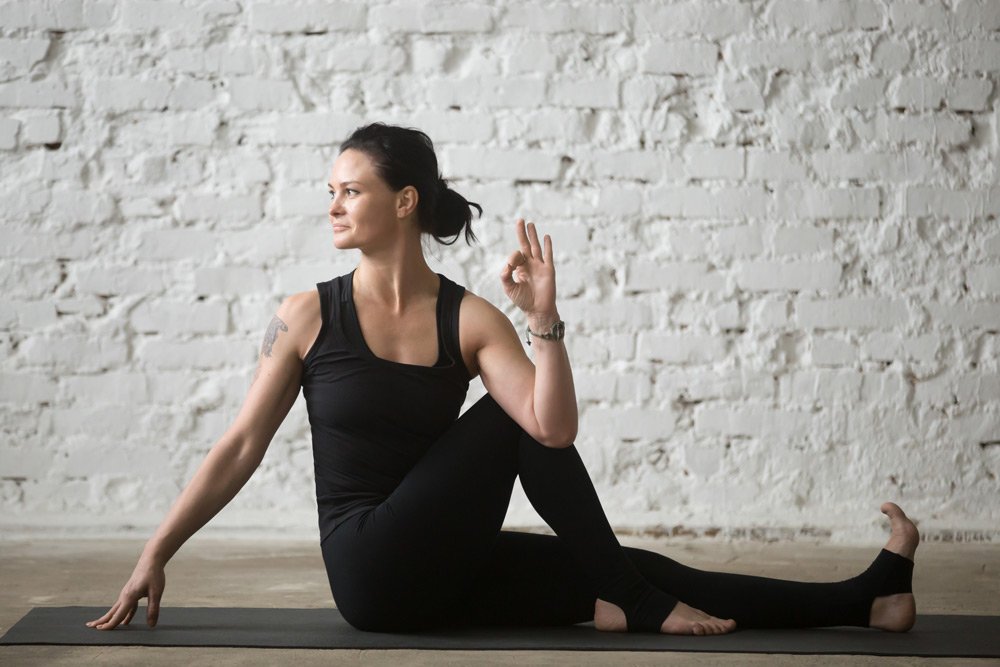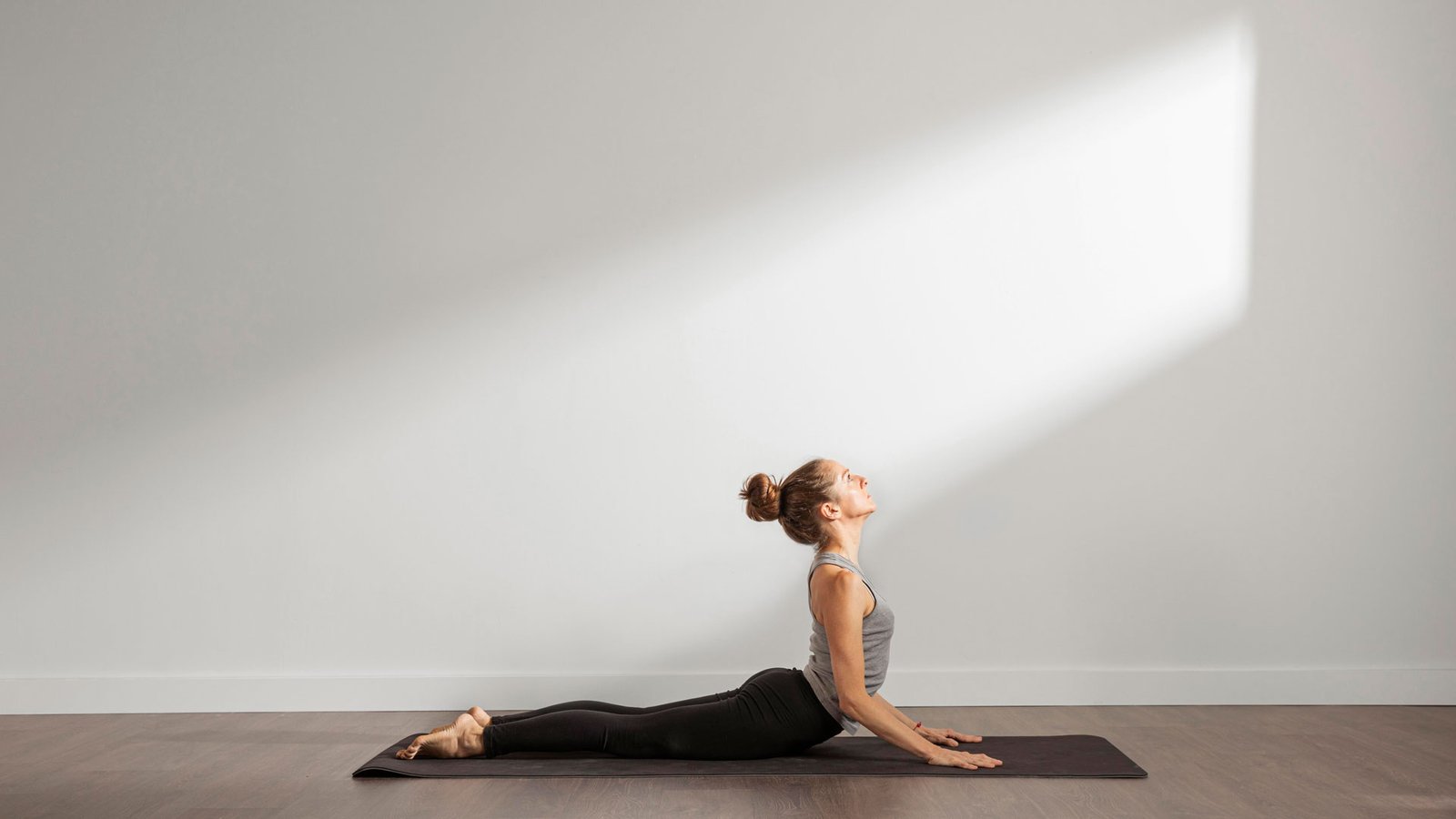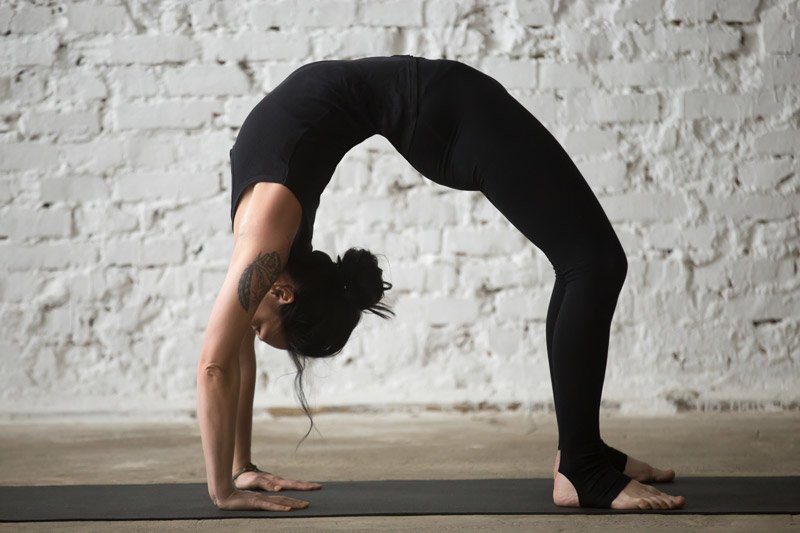Vakrasana, or the Twisted Pose, is a simple yet highly effective seated yoga posture that enhances spinal flexibility, improves digestion, and stimulates the internal organs. The word Vakrasana is derived from Sanskrit, where Vakra means “twisted” and Asana means “pose.” This gentle spinal twist helps detoxify the body, strengthen the spine, and promote overall well-being.
Vakrasana is an excellent pose for beginners and advanced practitioners alike, offering therapeutic benefits for the back, digestive system, and nervous system.
Steps to Practice Vakrasana
Step 1: Starting Position
Sit on the floor with your legs extended straight in front of you (Dandasana).
Keep your spine upright and your shoulders relaxed.
Step 2: Bending the Leg
Bend your right knee and place your right foot flat on the floor next to your left knee.
Ensure your right foot remains firmly planted on the ground for stability.
Step 3: Twisting the Spine
Inhale deeply and lengthen your spine.
Exhale and twist your torso to the right, bringing your left arm across your right knee.
Place your left hand on your right knee or extend it further to touch the right foot, depending on flexibility.
Place your right hand behind your back, fingers pointing away for support.
Step 4: Holding the Pose
Keep your back straight and shoulders relaxed.
Hold the twist for 15-30 seconds while breathing deeply.
With each inhalation, lengthen your spine, and with each exhalation, deepen the twist.
Step 5: Releasing the Pose
Inhale and slowly return to the starting position.
Repeat the same process on the left side by bending your left knee and twisting to the left.
For best results, repeat the pose 2-3 times on each side.
Benefits of Vakrasana
1. Improves Spinal Flexibility
Vakrasana enhances the flexibility of the spine, reducing stiffness and improving posture. It also strengthens the back muscles, helping to prevent lower back pain.
2. Aids Digestion
The twisting motion massages the abdominal organs, promoting better digestion, relieving constipation, and reducing bloating.
3. Stimulates the Liver and Pancreas
Vakrasana helps stimulate the liver and pancreas, improving their function. It can be beneficial for those with mild digestive disorders.
4. Enhances Lung Capacity
Deep breathing while twisting helps expand the lungs, improving lung function and oxygen intake.
5. Improves Blood Circulation
The pose enhances blood circulation, ensuring better oxygenation of cells and detoxification of the body.
6. Strengthens the Core Muscles
Vakrasana engages the abdominal muscles, strengthening the core and improving stability.
7. Relieves Stress and Anxiety
The controlled twisting movement calms the nervous system, reducing stress, anxiety, and mental fatigue.
8. Beneficial for Diabetes
The stimulation of the pancreas may help regulate insulin production, making it a useful pose for people managing diabetes.
Tips for Practicing Vakrasana
Maintain an Upright Spine: Avoid slouching while twisting. A straight spine ensures maximum benefits.
Breathe Naturally: Coordinate your breath with the movement. Inhale to lengthen, exhale to twist.
Do Not Force the Twist: Avoid overstretching or forcing the twist beyond your comfort level. Move gently and progressively.
Keep Both Hips Grounded: Ensure your sitting bones remain in contact with the floor to maintain balance and stability.
Practice on an Empty Stomach: Performing Vakrasana on an empty stomach maximizes its digestive benefits.
Use a Prop if Needed: If you have difficulty twisting, you can place a yoga block under your supporting hand for stability.
Be Consistent: Regular practice of Vakrasana improves flexibility and enhances its therapeutic effects.
Cautions and Contraindications
Back or Spinal Injuries: Avoid or modify the pose if you have severe back pain, herniated discs, or spinal injuries.
Recent Abdominal Surgery: If you have undergone surgery in the abdomen, avoid Vakrasana until fully recovered.
Pregnancy: Pregnant women should avoid deep twists that put pressure on the abdomen.
Severe Digestive Disorders: If you have severe ulcers or inflammatory bowel conditions, consult a doctor before practicing.
Sciatica: If you suffer from sciatica or nerve pain, perform this pose under the guidance of a yoga instructor.
Vakrasana is a simple yet effective yoga posture that offers numerous health benefits, particularly for spinal health, digestion, and stress relief. This gentle spinal twist helps detoxify the body, stimulate internal organs, and enhance flexibility. Whether you’re a beginner or an experienced yoga practitioner, incorporating Vakrasana into your daily routine can improve your overall well-being.
By practicing this asana with mindfulness, proper alignment, and controlled breathing, you can experience its full therapeutic potential, leading to a healthier, more flexible body and a calm, focused mind.






